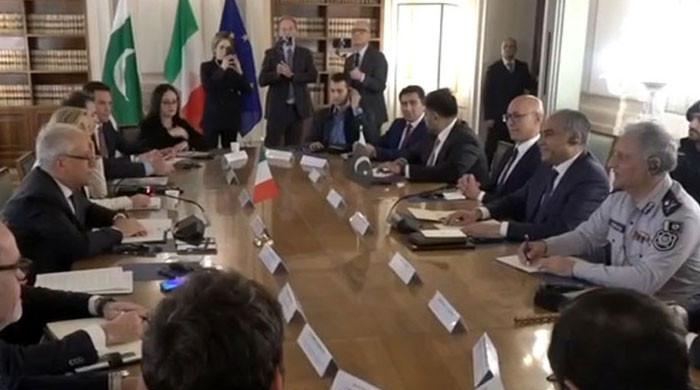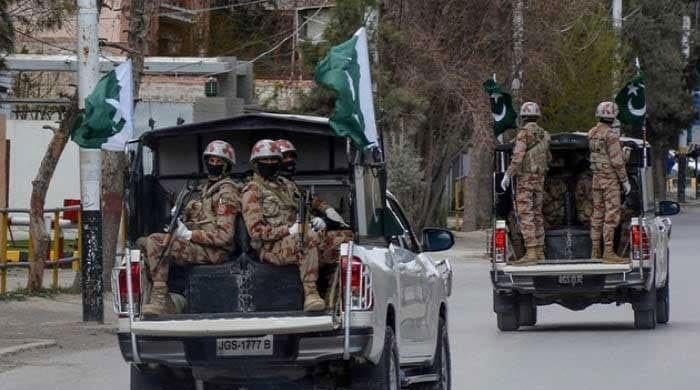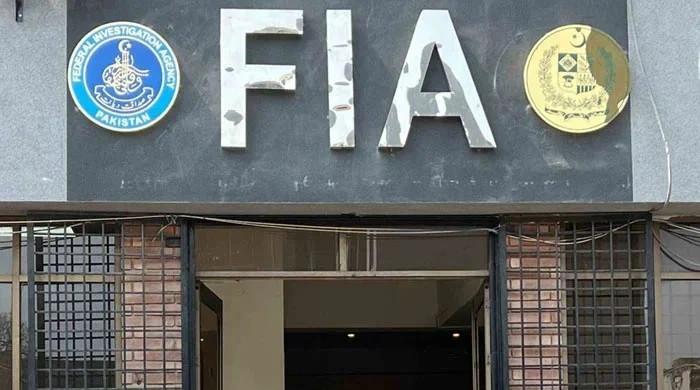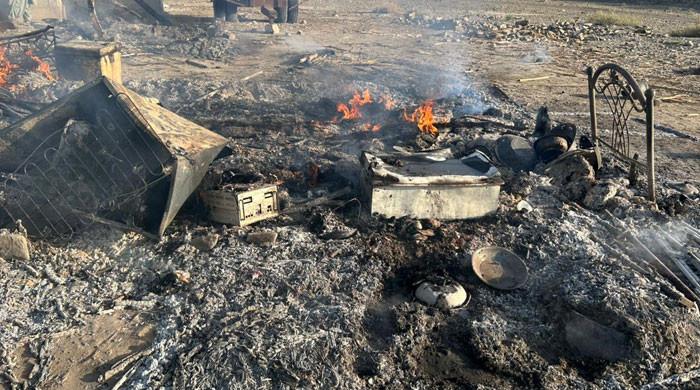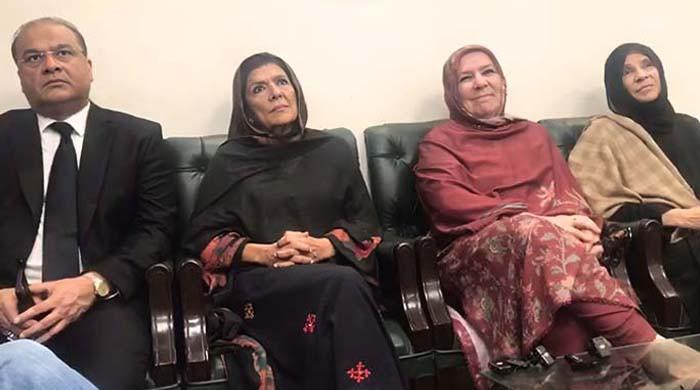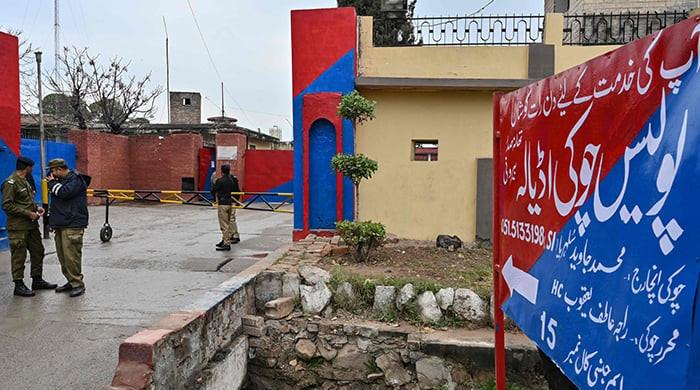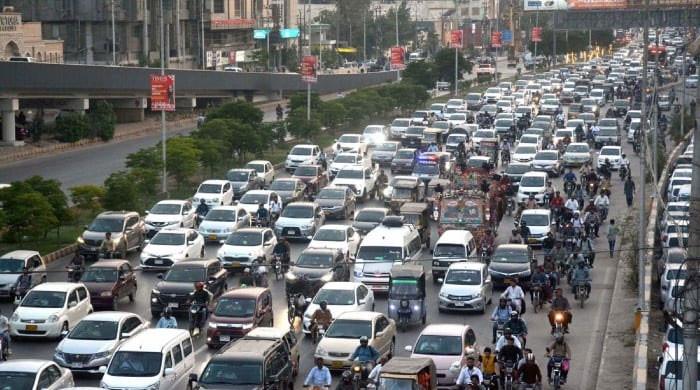Pakistan calls for Kashmir resolution at UN Security Council
At UNSC, Ambassador Ahmad reiterates Pakistan’s stance as he takes over council's presidency for July
July 02, 2025
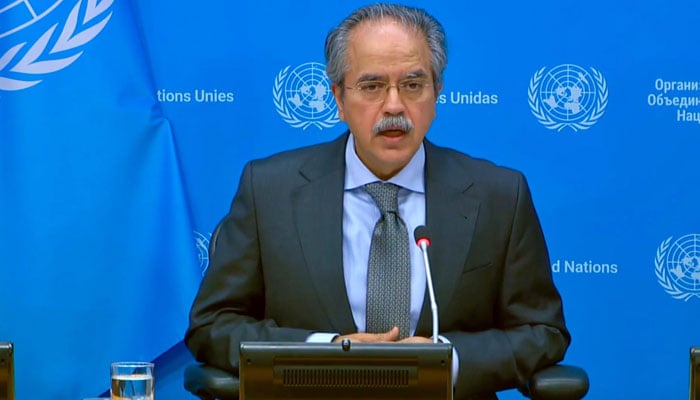
- Pak UN envoy says Kashmir issue causing tensions with India.
- Stresses it is time for world to act now and solve it.
- Calls on UNSC to get UN resolutions implemented.
UNITED NATIONS: Pakistan has called on the United Nations Security Council to take urgent steps to resolve the Kashmir dispute, said the country's permanent representative to the UN, Ambassador Asim Iftikhar Ahmad.
The remarks from Ahmad came as Pakistan took over the council’s presidency for July. He said that the long-standing issue of Kashmir is causing serious tensions between Pakistan and India.
Speaking at a packed press conference at the UN headquarters in New York, he said it was time for the world to act and not let the matter gather dust.
“It is time that this (Kashmir dispute) be addressed, and I would say this is not only a responsibility of Pakistan — we are here temporarily, two years as a non-permanent member,” he told a crowded press conference at UN Headquarters in New York, while responding to a question.
“I think it’s the responsibility of the Security Council itself, and particularly the permanent members, to see that they take certain steps to actually get their own resolutions implemented,” Ambassador Asim Iftikhar said.
“That’s the way forward,” he added.
Ahead of the press conference, the 15-member Council met and approved the programme of work for the month of July.
“Our approach is firmly rooted in the purposes and principles of the UN Charter — peaceful settlement of disputes, sovereign equality, respect for international law and multilateralism,” Ambassador Asim Iftikhar told the UN corps of correspondents.
Pakistan, he said, will convene two signature events during its presidency — a high-level debate on Promoting International Peace and Security through Multilateralism and Peaceful Settlement of Disputes, scheduled for July 22, and on UN-OIC cooperation on July 24. Both debates will be chaired by the Deputy Prime Minister and Foreign Minister, Senator Ishaq Dar.
Moreover, DPM/FM Dar will also preside over the quarterly open debate on Palestine on July 23.
“The debates stem from the reality that today’s crises often emerge from unresolved disputes, the erosion of international obligations, and the underutilisation of peaceful means enshrined in Chapter VI of the Charter,” the Pakistani envoy said.
“We aim to: reflect on the effectiveness of dispute settlement mechanisms; discuss obstacles to implementation of Council decisions; explore ways to enhance diplomacy, mediation and technical support; and reinforce the commitments made in the Pact for the Future to preventive diplomacy and peaceful dispute resolution.”
On Kashmir, Ambassador Asim Iftikhar also said that all issues on the Security Council’s agenda can be discussed at any time, and the decades-old dispute over the Himalayan state was on the agenda under the India–Pakistan question.
The UN Security Council has pronounced on it in several resolutions that, among other elements, grant the Kashmiri people their right to self-determination, he said.
“It is a festering dispute. It has several dimensions,” the Pakistan envoy said, noting its peace and security dimension, political and legal dimension, and also a human rights dimension.
“This is an issue that has remained unresolved. It is a cause of tensions and frictions between India and Pakistan. It is impeding the development of friendly relations in our region. It is time that this be addressed,” he added.
The Council, he said, will remain focused on key global issues, including the situation in the Middle East and developments in Africa, Europe, Asia, and Latin America.
The presidency of the Security Council — the world body’s power centre — is part of Pakistan’s two-year term as a non-permanent member of the UNSC, which began in January 2025. The presidency rotates monthly among its 15 members in alphabetical order.
Pakistan’s earlier terms on the Council were in 2012–13, 2003–04, 1993–94, 1983–84, 1976–77, 1968–69 and 1952–53.
Pakistan was elected as a non-permanent member with the overwhelming support of the UN membership, securing 182 votes out of 193.




